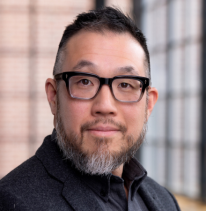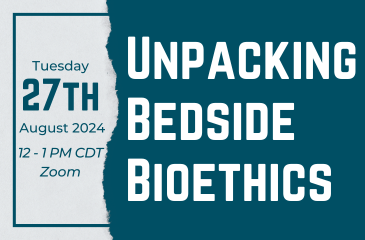
HEC-C
Currently, there is significant controversy regarding whether and how patients may work with clinicians to influence the time and manner of their death at the end of life. This session will describe treatment options that might allow patients to hasten death at the end of life, including patient refusals of life sustaining treatment, voluntary stopping of eating and drinking, medical aid in dying, and euthanasia.
Learning Objectives: After this webinar, attendees will be able to:
- Define and distinguish between treatment options for potentially hastening death at the end of life.
- Describe the interests of patients in being able to make choices about the time and manner of their deaths at the end of life.
- Describe ethical principles and commitments that justify or limit clinician involvement in interventions that might hasten death.
Speaker(s)
Joel Wu, JD, MPH, MA, HEC-C, is a Center for Bioethics’ Clinical Ethics Assistant Professor and a senior lecturer in the Division of Health Policy and Management at the University of Minnesota’s School of Public Health. He is a co-chair of the University of Minnesota Medical Center's Ethics Committee, co-lead for the clinical ethics consultation service for MHealth Fairview system hospitals, and member of the MHealth Fairview Ethics Council. Professor Wu also teaches courses at the intersection of clinical ethics, public health ethics, and public health law.
